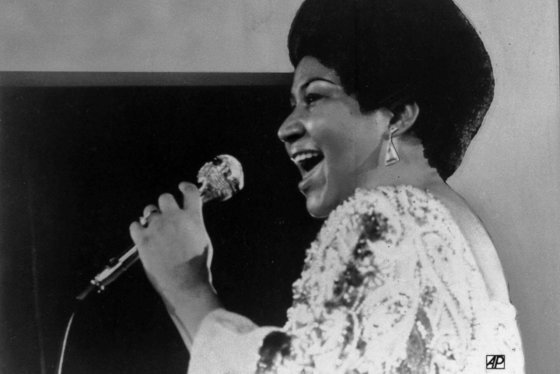WASHINGTON — The tributes to Aretha Franklin are coming from all over the world after the Queen of Soul died Thursday of advanced pancreatic cancer at 76. In a conversation with WTOP Thursday, legendary D.C. DJ Donnie Simpson, a fellow Detroit native, remembered Franklin as a “down-home” woman with a voice that could move mountains.
She was “not just the queen of Detroit, but the queen of America and the queen of the world,” Simpson said. “She was very special.”
Franklin’s father, C.L. Franklin, was a pastor in Detroit; Franklin learned to sing in his church, and Simpson went there as a kid. Recently, Simpson’s mother, who has run a record store in Detroit for 52 years, sent him “a cassette, if you can believe it” of Franklin singing in her father’s church at age 10. “And she was amazing then.”
“It’s — I don’t even want to say a once-in-a-lifetime voice. A once-in-a-century voice,” Simpson said Thursday.
Simpson recalled his most vivid memory of Franklin: a special episode of his “Video Soul” TV program in the 1990s, in which he interviewed the singer in her house and sat on her couch while she sat at the piano and sang the Curtis Mayfield song “Makings of You.”
“And I just started crying,” Simpson remembered. “I just lost it right there on TV. There was so much in that moment for me. This was the greatest voice I’d ever heard, and it was singing one-on-one to me in my ear. I’m sitting on the queen’s throne — this little boy from Detroit who grew up looking at Cadillacs that went by, hoping to see one of her cousins. And I just couldn’t understand how I’d got there.”
Simpson recalled the way Franklin could imprint her style and personality not only on her own songs, but also songs she covered. Once Franklin sang a song, Simpson said, “It’s done.”
He remembered when Narada Michael Walden, who produced several of Franklin’s records during her 1980s comeback, including the hit “Freeway of Love,” told him “he’d never worked with anyone who was so prepared.”
“She’d do her vocals in one take, beginning to end, and Walden would suggest doing it again. Franklin would say ‘no, baby; that’s it,’” Simpson said with a laugh. “Not arrogant, just saying ‘I know that was good.’ … It was perfect the first time.”
Simpson remembered Franklin as a warm, good-hearted person without any airs. The day of the TV show, “she cooked this incredible spread for me and the whole cast,” he said.
“She was just so warm. She was just down home; she was a Detroit girl, you know. She was just my sister and I’m dearly going to miss her.”
Even though he had had a long friendship with Franklin, Simpson still saw what the singer meant to the world: “She was the queen, and my tears today are more as a villager than a friend. My queen is dead. And she meant something to me, and a lot of people. She moved you with that voice.”
With all that, his feelings are mixed. “As sad as I am today, you know how it is at these moments — you just have to rejoice. She’s gone home, and I’m happy about that.”









